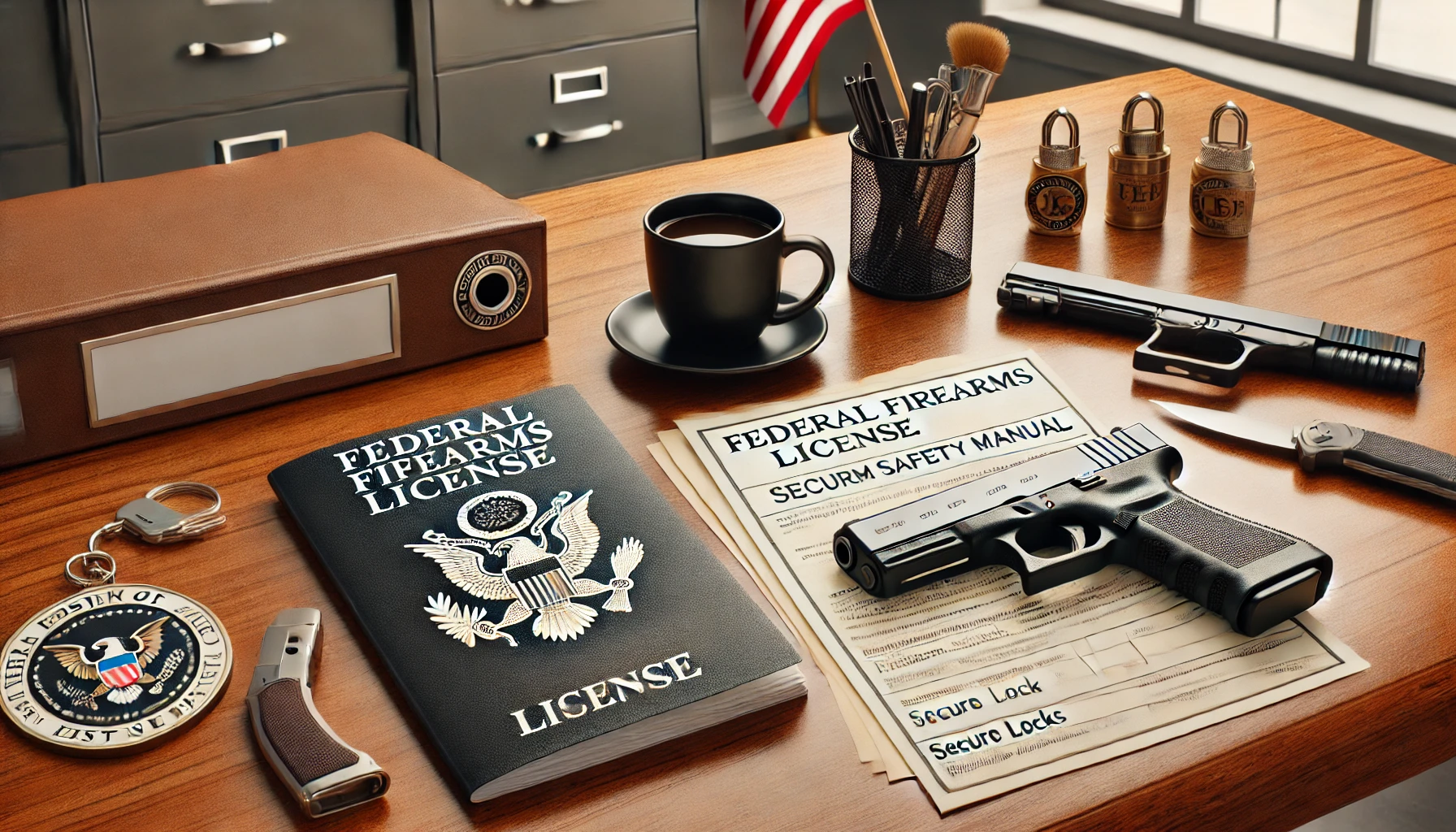If you’re in the firearms industry or a firearms collector, chances are you’ve heard about an FFL or Federal Firearms License. But have you ever wondered how long can an FFL? Keeping your FFL active is critical to staying on the right side of the law, and in this article, we’ll cover everything you need to know about its validity, renewal, and maintenance.
What is an FFL?
Federal Firearms License, is issued by the Bureau of Alcohol, Tobacco, Firearms, and Explosives (ATF). It allows individuals and businesses to manufacture, import, and sell firearms and ammunition. There are several types of FFLs, depending on the nature of your business or personal needs, ranging from dealing in firearms to manufacturing explosives.
Why is FFL Validity Important?
Your FFL is more than just a piece of paper—it’s your lifeline to legally engage in firearm-related activities. If it lapses, you could face hefty fines, legal action, or even a business shutdown. Staying informed about its validity ensures you remain compliant and avoids unnecessary stress.
How Long is a Valid?
Generally, an FFL is valid for three years from the date of issuance. However, this duration applies across most license types. If you’re unsure about the exact validity period for your specific FFL, it’s always best to check directly with the ATF.
Renewal Process for a Federal Firearms License
Renewing your Federal Firearms License is straightforward if you stay on top of deadlines. Here’s how it works:
-
Start Early
Begin the renewal process at least 90 days before your license expires.
-
Fill Out the Renewal Form
Use ATF Form 8 (Part II).
-
Pay the Fee
Renewal costs vary depending on your license type. For example, a basic dealer’s license renewal fee is typically $90.
-
Submit on Time
Late renewals may require additional documentation or result in a lapse.
Consequences of Letting an FFL Expire
What happens if you miss the renewal deadline? Brace yourself for:
- Ceasing Operations: You cannot legally sell, manufacture, or import firearms.
- Fines and Penalties: Operating without a valid license could lead to severe legal action.
- Loss of Reputation: Your clients and partners may lose trust in your business.
Factors Affecting Federal Firearms License Validity
Several factors can influence your license’s validity:
- Regulatory Changes: Federal laws and guidelines can shift, impacting your FFL.
- Business Changes: Moving locations or changing business structures can require updates to your license.
Steps to Maintain FFL Validity
Maintaining your FFL is simpler than you might think. Here’s what you need to do:
- Stay Organized: Keep accurate records of your firearm transactions.
- Follow the Rules: Adhere to all federal and state laws governing firearms.
- Plan Ahead: Set reminders for renewal deadlines to avoid lapses.
Can You Extend an FFL’s Validity Period?
In rare cases, temporary extensions might be granted, especially if there are delays on the ATF’s side. However, these situations are exceptions, not the rule.
What Happens During an FFL Inspection?
FFL inspections are routine but critical. They ensure that you’re complying with all applicable laws. Inspectors review your records, inventory, and overall operations. A successful inspection helps maintain your license without issues.
Special Cases and Exemptions
Certain situations, like military deployment or business relocation, may allow for exceptions or special considerations regarding FFL validity. Always communicate with the ATF to explore your options.
Common Mistakes FFL Holders Make
Some pitfalls include:
- Forgetting to renew on time.
- Providing incomplete or inaccurate information on renewal forms.
- Failing to maintain proper records.
Tips for FFL Holders
- Set Calendar Alerts: Don’t rely on memory; use technology to remind you of key dates.
- Consult Professionals: Legal and business experts can provide valuable guidance.
FFL Validity and State-Specific Laws
While the FFL is a federal license, state regulations can add another layer of complexity. Ensure you’re compliant with both to avoid potential issues.
Also Read:: How Long Can an FFL Hold Your Firearm
Conclusion
Wondered how long can an FFL? Your FFL is the backbone of your firearm-related business or hobby. Keeping it valid ensures you stay compliant, avoid penalties, and maintain your operations smoothly. Always prioritize renewals and stay informed about regulatory changes to keep everything on track.
FAQs
- How much does it cost to renew a Federal Firearms License?
Renewal fees start at $90 but vary depending on the license type. - What happens if I don’t renew my Federal Firearms License on time?
You’ll need to stop all firearm-related activities until your license is reinstated. - Can I transfer my Federal Firearms License to another state?
Yes, but you must notify the ATF and follow their procedures for relocation. - What documents do I need for Federal Firearms License renewal?
Typically, you’ll need a completed ATF Form 8 (Part II) and payment of the renewal fee. - How do I check the status of my FFL?
Contact the ATF directly or use their online tools for updates.




